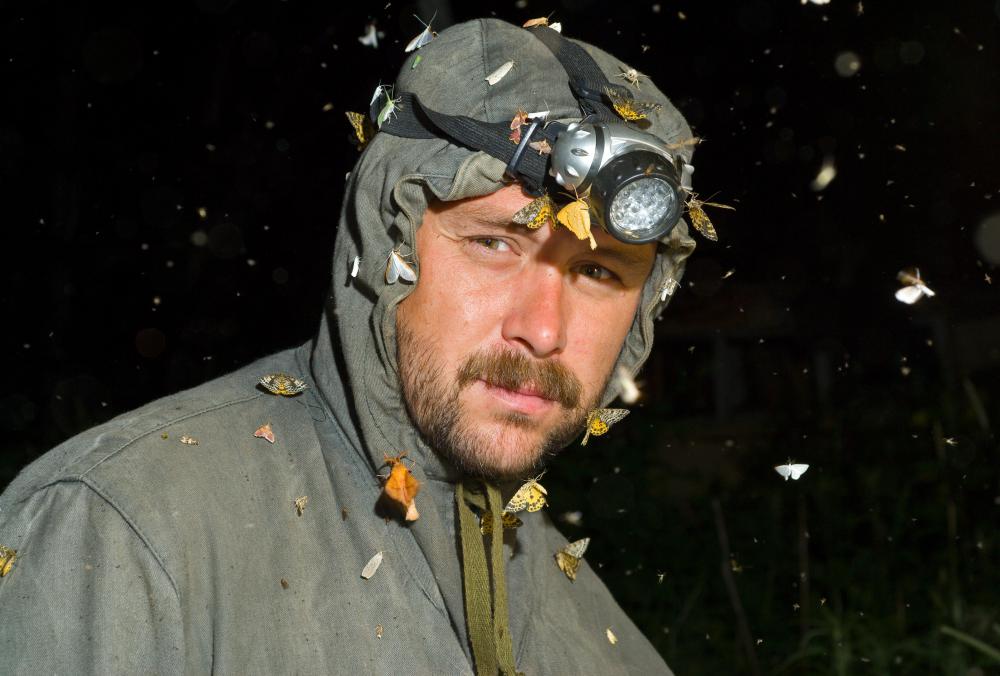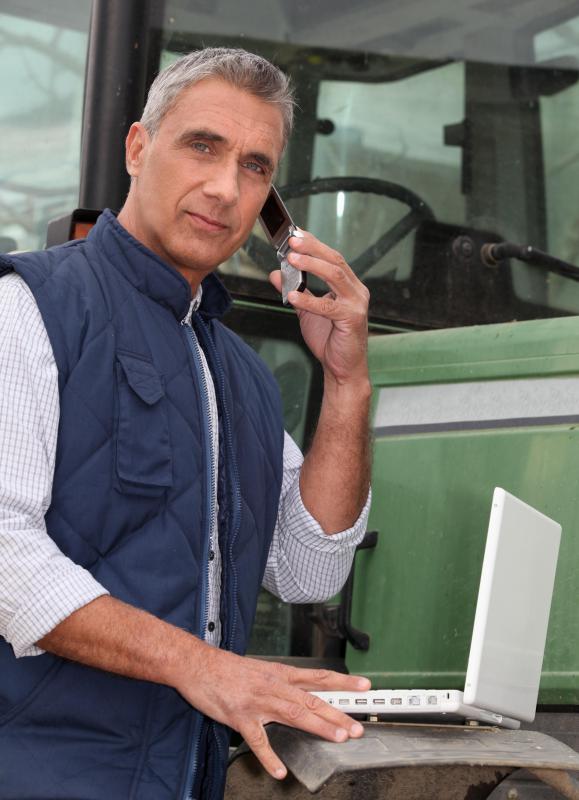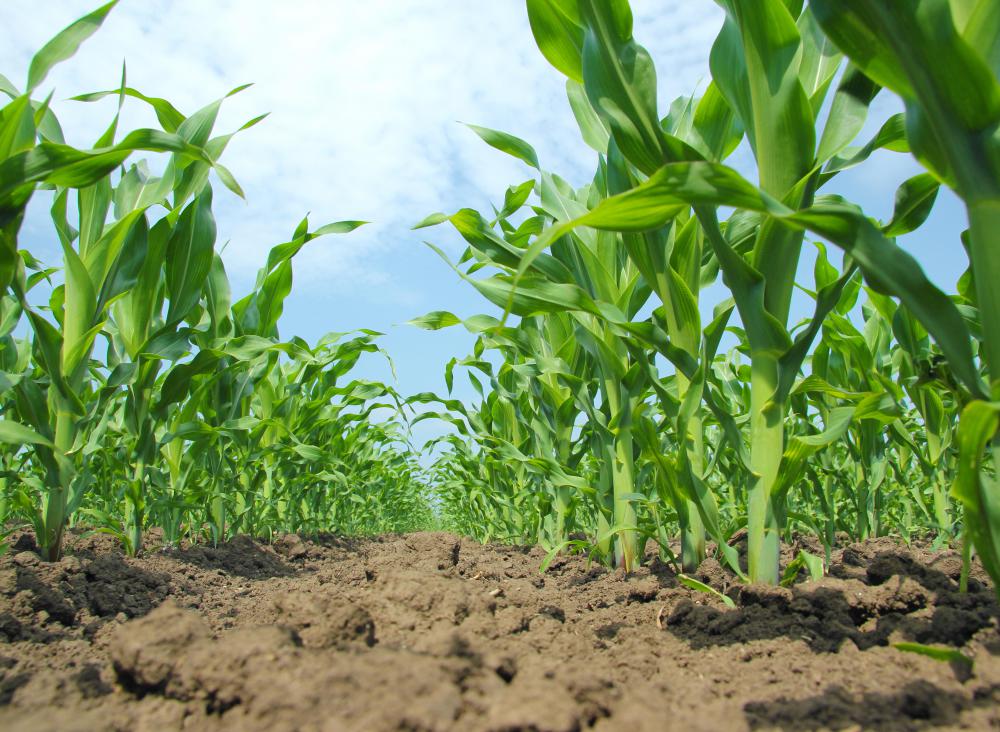At PracticalAdultInsights, we're committed to delivering accurate, trustworthy information. Our expert-authored content is rigorously fact-checked and sourced from credible authorities. Discover how we uphold the highest standards in providing you with reliable knowledge.
What are Different Types of Agronomist Jobs?
Agronomist jobs include a wide variety of careers that involve plants or things made from plants, such as food, fabrics, and biofuels. They often also deal with conservation and sustainability. Careers in these areas often overlap with farming in some way. Some agronomist jobs include research, crop production and management, soil and water conservation, and sustainable development. Many agronomists have degrees in agronomy, but degrees in a variety of agriculture-related fields can lead to a career in this field.
Most research-related agronomist jobs require a master's or doctorate degree in agronomy or a related field. Research may involve any agronomy-related area, including crop productivity, genetic engineering, and conservation practices. Bioenergy and sustainable agriculture are other common areas of research. Research agronomists often work in labs and, depending on what they are researching, they may also perform large amounts of fieldwork.

Crop production and management jobs can vary widely depending on the type of crop and the size of the operation. Agronomists most often work with field crops, such as cotton, wheat, corn, and soybeans. They may manage things such as crop planting and harvesting, and implementing more efficient farming practices. Another area of management agronomist jobs is recreational areas, such as golf courses, sports fields, and turfgrass management. These types of jobs often involve large amounts of time working outdoors.

Agronomists involved in soil and water conservation are often scientists or engineers. They may implement practices to control erosion, improve water quality, and manage stormwater runoff. Environmental engineers as well as agricultural scientists are often involved in these areas of agronomy. Depending on their specific duties, agronomists involved in conservation may spend large amounts of time in an office, outdoors, or both.

Sustainable development jobs interact with all areas of agronomy and agriculture. Agronomists working in sustainable development may be involved with projects ranging from large-scale, high-tech farming operations to small individual farms in developing nations. Whatever the size of the project, the goal of agronomists working in sustainable development is to help farmers implement practices that will ensure that their operation is remains economically and environmentally viable in the future.

Many agronomist jobs require some kind of college degree. While agronomy degrees can certainly lead to a career in agronomy, many other degrees can qualify a person for agronomist jobs as well. Some such degrees include soil and crop sciences, entomology, biology or microbiology, plant pathology, and environmental or agricultural engineering.
AS FEATURED ON:
AS FEATURED ON:














Discussion Comments
@jcraig - I know don't of any small scale farmers that have agronomy degrees. Like you mentioned, most of them have family farms that have been passed down. People who study crop production would probably be able to find jobs from the large scale crops producers.
The thing I'm specifically thinking of is a company like Anheuser-Busch that owns thousands of acres of farm land where they grow their hops and barley. They need to hire college grads who understand how to maximize the amount of product grown on a certain area using the fewest resources.
I'm sure there are other companies with similar company farms that I'm not thinking of. I'm guessing cereal companies probably own their own wheat farms. Not sure about that one, though.
@stl156 - Like the article mentions, there are a lot of different types of jobs depending on what specialization an agronomist has. You are right that most counties have some sort of farm specialist. They can advise farmers on when the best times of the year to plant and harvest are going to be this season, or they might give them information on new hybrid seeds or pesticides that are on the market.
Being one of the people that develops new seed hybrids would be another career path. Companies like Monsanto spend millions of dollars researching more productive seeds. Those jobs are probably more well suited for someone with a plant physiology or genetics based degree.
Besides that, the government always has jobs for agronomists. The US, and I assume other countries, need to check the production levels of different crops to develop regulations and subsidies for farmers. Someone interested in the economics of farming might take that path.
What all types of jobs can an agronomist get? The article kind of gives the agronomist job description, but I'm curious who hires these people if they don't start farming for themselves.
The only thing I can really think of might be like a county farm adviser. I know we have some sort of farming office near where I live. I assume it is connected to the state extension office somehow and they give information to farmers. What kind of information do they give, though? What sort of stuff do farmers need before they start planting crops for the year?
Most farmers don't have agronomy degrees do they? I thought most of them just carried on a family business and learned from their relatives. If you get a degree, what would you learn that you wouldn't normally get just from family information? Along the same lines, are there actually people whose families don't farm, but go to college to learn how?
What types of specific classes does and agronomist take when they are in college? What is the length of most programs? Do most agronomists go to four year universities or junior colleges?
One of our good friends is an agronomist. He works for a well known seed corn company. If you like to eat fresh vegetables, he is a good friend to have.
He loves planting gardens and knows the right soil to use, the best time to plant and everything you need to have a successful crop. The best part about this is that he always shares his bounty with us.
His company has a special field where they plant sweet corn every year for their employees. This is the best sweet corn I have ever had.
I don't know much about what an agronomist does, but know that they are very important to agriculture.
I live in a state where corn and soybeans are main sources of income for many farmers and know that an agronomist is part of the process of developing good seed.
Post your comments